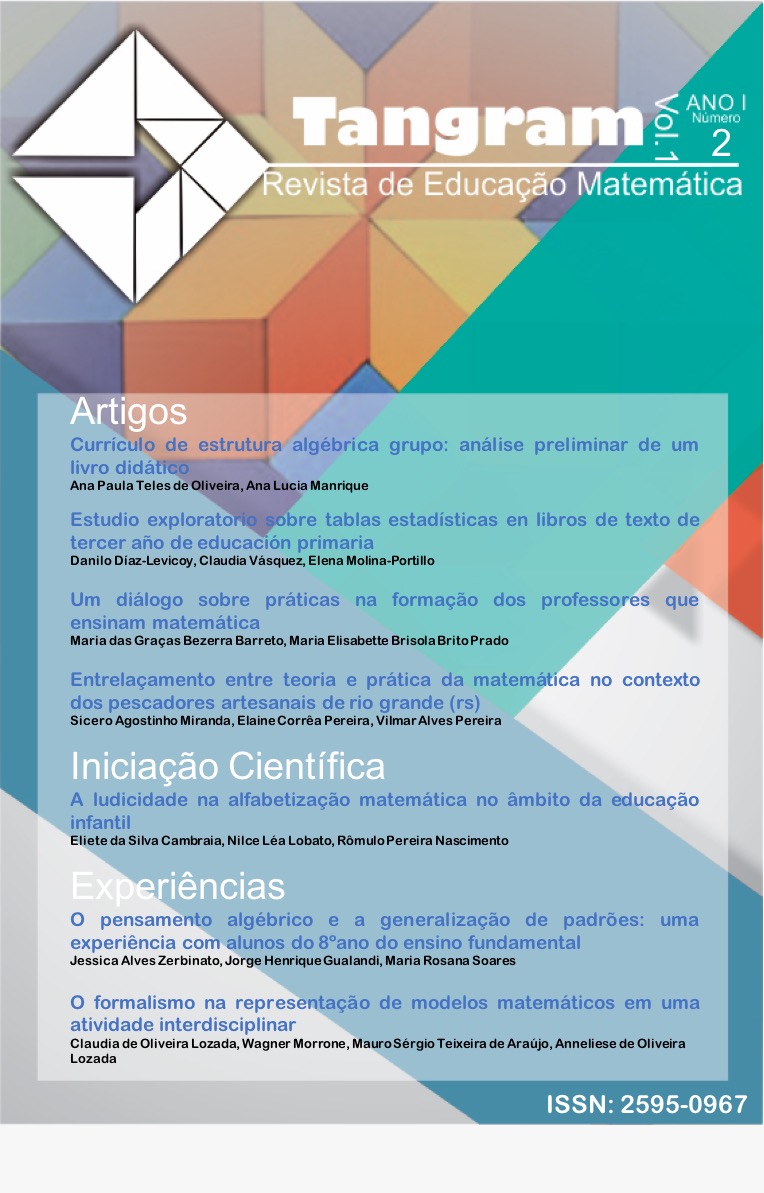A ludicidade na alfabetização matemática no âmbito da educação infantil
DOI:
https://doi.org/10.30612/tangram.v1i2.7979Abstract
O estudo tem como tema investigar as etapas do desenvolvimento infantil no processo de alfabetização e conhecimento matemático com o objetivo de identificar como a criança é vista pelo professor dentro da didática pedagógica na alfabetização matemática[1]através de lúdico. A luz dos teóricos Piaget (2007), Vigostsky (2000), Pais (2006), será analisado o uso de jogos e brincadeiras na educação infantil, com base nas pesquisas de Kishimoto (2000), Brougére (2003) entre outros autores. Por meio da pesquisa de campo traremos resultados para o aprimoramento contínuo e com base no estudo qualitativo abordaremos a atividade lúdica como instrumento facilitador na sala de aula que irá permear uma educação de qualidade valorizando o sujeito em distintos campos do saber
Downloads
Downloads
Published
How to Cite
Issue
Section
License
Authors must accept the publication rules when submitting the journal, as well as agree to the following terms:
(a) The Editorial Board reserves the right to make changes to the Portuguese language in the originals to maintain the cultured standard of the language, while respecting the style of the authors.
(b) Authors retain the copyright and grant the journal the right to first publication, with the work simultaneously licensed under the Attribution-NonCommercial-ShareAlike 3.0 Brazil (CC BY-NC-SA 3.0 BR) that allows: Share - copy and redistribute the material in any medium or format and Adapt - remix, transform, and create from the material. CC BY-NC-SA 3.0 BR considers the following terms:
- Attribution - You must give the appropriate credit, provide a link to the license and indicate whether changes have been made. You must do so under any reasonable circumstances, but in no way that would suggest that the licensor supports you or your use.
- NonCommercial - You may not use the material for commercial purposes.
- Sharing - If you remix, transform, or create from material, you must distribute your contributions under the same license as the original.
- No additional restrictions - You may not apply legal terms or technological measures that legally restrict others from doing anything that the license permits.
(c) After publication, authors are allowed and encouraged to publish and distribute their work online - in institutional repositories, personal page, social network or other scientific dissemination sites, as long as the publication is not for commercial purposes.






